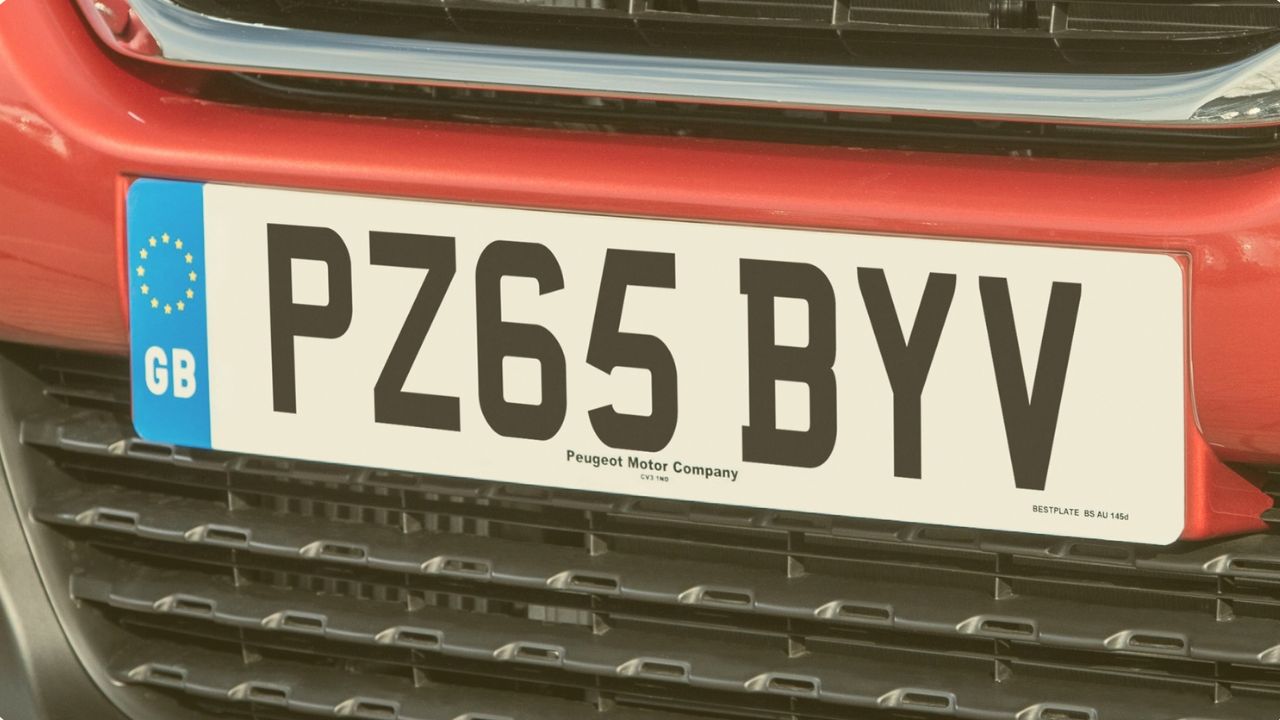We live in an era where information can be accessed with just a few clicks, and this has raised the question asked by many UK drivers, “Can someone find your address from your license plate?”
Your license plate number, visible to strangers, doesn’t give them access to sensitive information, including your address and other personal information. So, if you’re wondering if someone can find your address from your license in the UK, the general answer is “No.”
In this article, we will provide more insights and cover everything you should know about this matter.
How do License Number Plates Work?
All vehicles on the road in the UK must be registered using the number plate system, which is simple to use. Each car has a distinct registration number that the DVLA uses to keep track of it.
In order for the DVLA (and related authorities) to know whether your car has a current MOT and is insured, they share databases with the police and insurers.
In the event that you are photographed by any fixed-mounted cameras (speed cameras) or police cameras, your license plate may also be used to identify the vehicle (but not the person).
Need to verify the MOT Status of a car?
What Information Can You Get From a Licence Plate Check?
A third-party car registration check site like Smart Car Check can help provide other records retrievable from the vehicle registration number. These include:
- Number of previous keepers
- Tax/VED rates
- Safety N cap rating
- Number plate changes
- Mileage history
- Colour changes
- Mileage discrepancy & information
- MOT history & status
- ULEZ compliance
- Scrapped
- Vehicle Identity Check (VIC)
- Running costs
- Imported/Imported non EU
- Fuel economy
- Vehicle performance
- Certificate of destruction issued
- Electric vehicle charging data
In addition to this, you can also perform a free VIN check UK to access even more detailed information about a vehicle’s history.
Finding Vehicle Owner’s Address by Number Plate
It’s illegal to obtain personal information like your address from the license plate. However, if you must, you will have to go through some documentation by doing this:
- Fill out form V888 from the DVLA.
- Include a “just cause” explanation if you wish to know the address. If, for instance, you have concerns about a car that has been parked outside your home, it is unlikely that the DVLA will give you this information. Instead of conducting your own inquiry, it would be much preferable to inform the DVLA or the local government.
READ ALSO: How to check a Car’s Previous Owners by Reg from DVLA
Can Someone Find Your Address From License Plate? (Possible Cases)
Here are some reasons your address may be recovered from your license plate by the DVLA:
- If a person has been in a car accident with that vehicle or if the driver of that vehicle has damaged or caused damage to another person’s property and fled the scene without disclosing their information.
- It’s possible that a vehicle has been left unattended on a piece of private property or land, and the landowner wants to find out who is responsible for the vehicle’s removal in order to avoid having to foot the bill.
- A business or firm may need to identify the name and address of a person who has left their premises after taking goods or services without paying for them.
- A parking enforcement agency, business, or other driving penalty enforcement agency may need to obtain information relating to the vehicle owner’s address.
- There may have been a traffic violation committed but not reported to the police, or someone may have seen something suspicious like a person getting into a car to drive while intoxicated or using drugs, a baby being transported without the proper and legal safety precautions, or a vehicle that appears to be unroadworthy.
Can Someone Find Your Address From Your License Plate? (Impossible Cases)
It’s not possible for someone to obtain your address from your license plate in these instances:
- If the driver of the car at the time of the incident in question is not the owner of the car. It might be a friend or relative of the owner borrowing the car, a named driver driving under their own fully comprehensive and transferrable insurance, or even having stolen the car.
- It might be a car from the company fleet or a rental car. All of this would imply that even if you managed to obtain this information, the vehicle registration would never be able to be linked to this person. False car registration is another issue; owners give their own residence as the address for the vehicle.
- A person who engages in illegal or harmful activities and behaviors may well have given false information when registering ownership of the vehicle so they won’t be traced.
- It’s also possible that the individual who is now in control of the vehicle did not complete the necessary paperwork to transfer ownership or failed to update it after moving or changing their address.
Regardless of the data you can get from a car license plate number, there is a chance that any address information you discover will be unhelpful, unreliable, untrue, or outdated.
READ ALSO: How long is an MOT certificate normally valid? (Answered)
What Can Someone Do With Your License Plate?
Occasionally, a person may lawfully acquire the address information of the car’s owner by using the license plate number.
It must be kept in mind that if the vehicle’s registration is inaccurate or if the person driving it at the time of the incident is not the owner, this will not immediately fix the problem but may aid in its final resolution.
The Data Protection Act places limitations on the sharing of this information, and an application must be accepted as legitimate for an address to be provided.
The DVLA might disclose an address in the following circumstances:
- Identifying the person who caused a traffic accident on the road.
- Identifying the owner of an abandoned car that has been parked on private property or a car that has been left on a private road.
- Identifying a customer who departed without paying for the good(s) or service(s) they got.
- Locating a person who is thought to be an insurance fraudster..
If the person operating the vehicle has been seen engaging in illegal activity or criminal behavior, it is not necessary to find out the driver’s address, but it is important to report this suspicion to the police along with the license plate number so that they can follow up with the driver in a legitimate and enforceable manner.
Can You be Tracked by Your License Plate?
Nowadays, we may feel secure knowing that our personal information is handled according to the data privacy law. CCTV and other technology also contribute to our sense of security.
However, if you have received a speeding ticket before, you will attest that cameras and databases can pinpoint our identities and whereabouts.
If you’re worried that someone can identify you through your number plate or even trace your location, rest assured that only the DVLA or law enforcement can do this, and only with good reason.
Frequently Asked Questions
How do I find out who owns a car?
To find out who owns a car, you can request information from the Driver and Vehicle Licensing Agency (DVLA) by completing a V888 form, but you'll need a "reasonable cause" to do so
Can a Vehicle Check show the registered keeper name?
No, a standard vehicle check service, including those offered by the DVLA, will not typically reveal the personal details of the registered keeper, including their name, but you can request this information from the DVLA.
What owner information do you get in a Vehicle Check?
By running a car reg check, you can find out the number of previous owners and how long they owned the car. Personal information like name, address or phone are not retrievable due to driver data privacy law.




